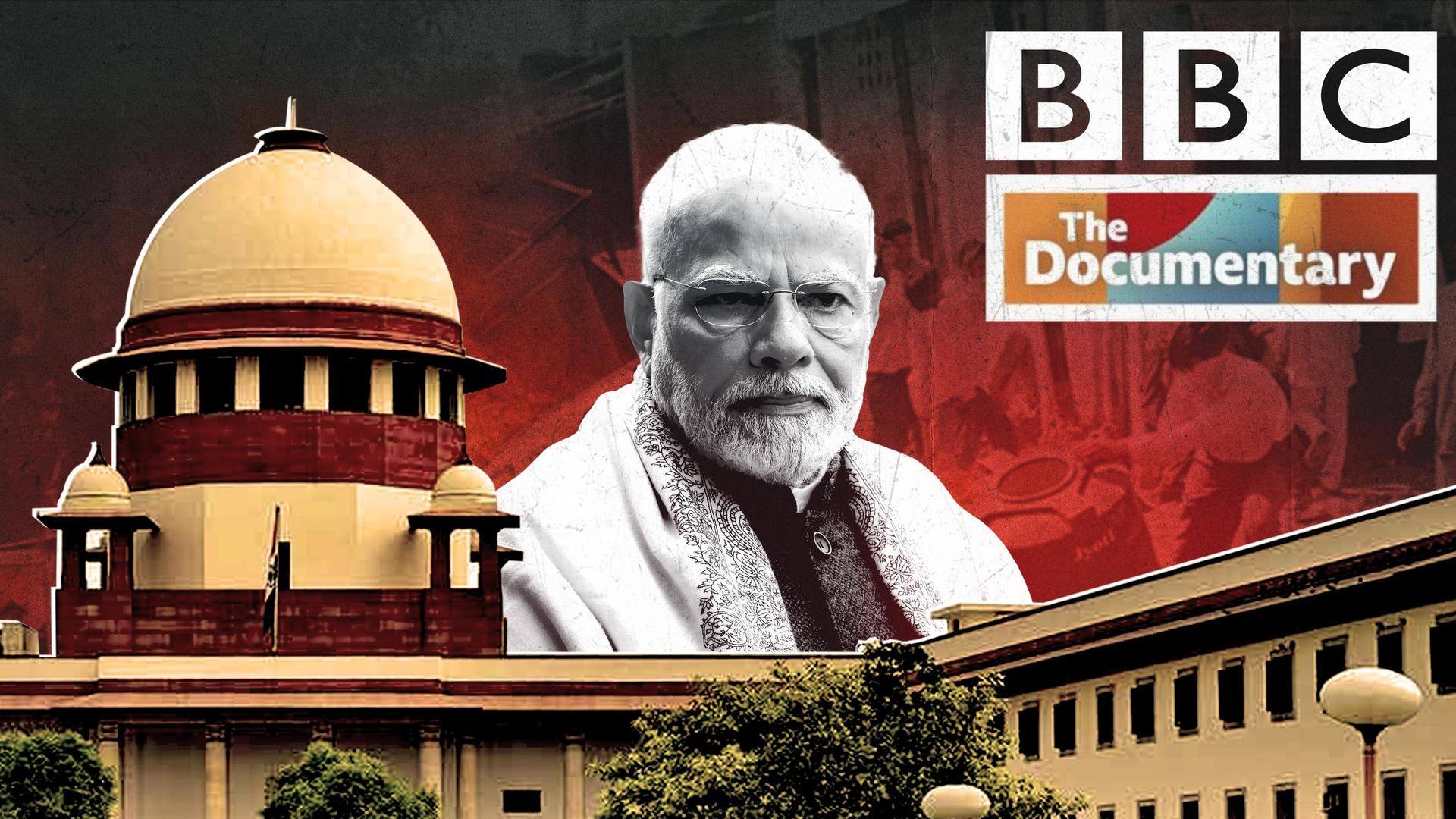
SC junks PIL seeking complete ban on BBC in India
What's the story
The Supreme Court on Friday dismissed a plea seeking complete ban on the operations of British Broadcasting Corporation (BBC) in Indian territory in the wake of its documentary on Prime Minister Narendra Modi and his approach toward the country's Muslim minority. The public interest litigation (PIL) filed by Hindu Sena president Vishnu Gupta alleged that the BBC took an "anti-India" position through the documentary.
Context
Why does this story matter?
Soon after its release last month, the Centre banned the documentary on PM Modi, branding it as colonial propaganda pushing a "discredited narrative." In defiance of the ban, various groups screened the controversial documentary across the country and moved the top court against the "censorship." Last week, the SC issued a notice to the Centre following appeals challenging its move to ban the documentary.
Hearing
PIL absolutely misconceived: SC
A bench of Justices Sanjiv Khanna and MM Sundersh hearing the PIL termed it "absolutely misconceived." Responding to this, the petitioner's counsel senior Advocate Pinky Anand argued, "Kindly see the background when the documentary happened. Today you have a position, when you have an Indian as the Prime Minister of the UK. India is rising as an economic power," reported LiveLaw.
PIL
BBC, anti-India lobby unable to digest India's global rise: PIL
The PIL reads, "India's overall growth has picked up momentum since 2014 under the Prime Ministership of Sh. Narendra Modi, which is not being digested by anti-India lobby, media, particularly BBC. Therefore, the BBC has been biased against India and the Indian Government." It further called the documentary "deep conspiracy against India's global rise" and justified the Centre blocking the documentary.
Details
SC also refused to post the matter with other petitions
The petition claimed that the BBC was disturbing India's peace and national integrity. Anand requested the bench to post the matter along with other pleas challenging the government's ban on the documentary. However, the bench denied the request and scrapped the plea saying, "The writ petition is entirely misconceived; has no merit and is dismissed."